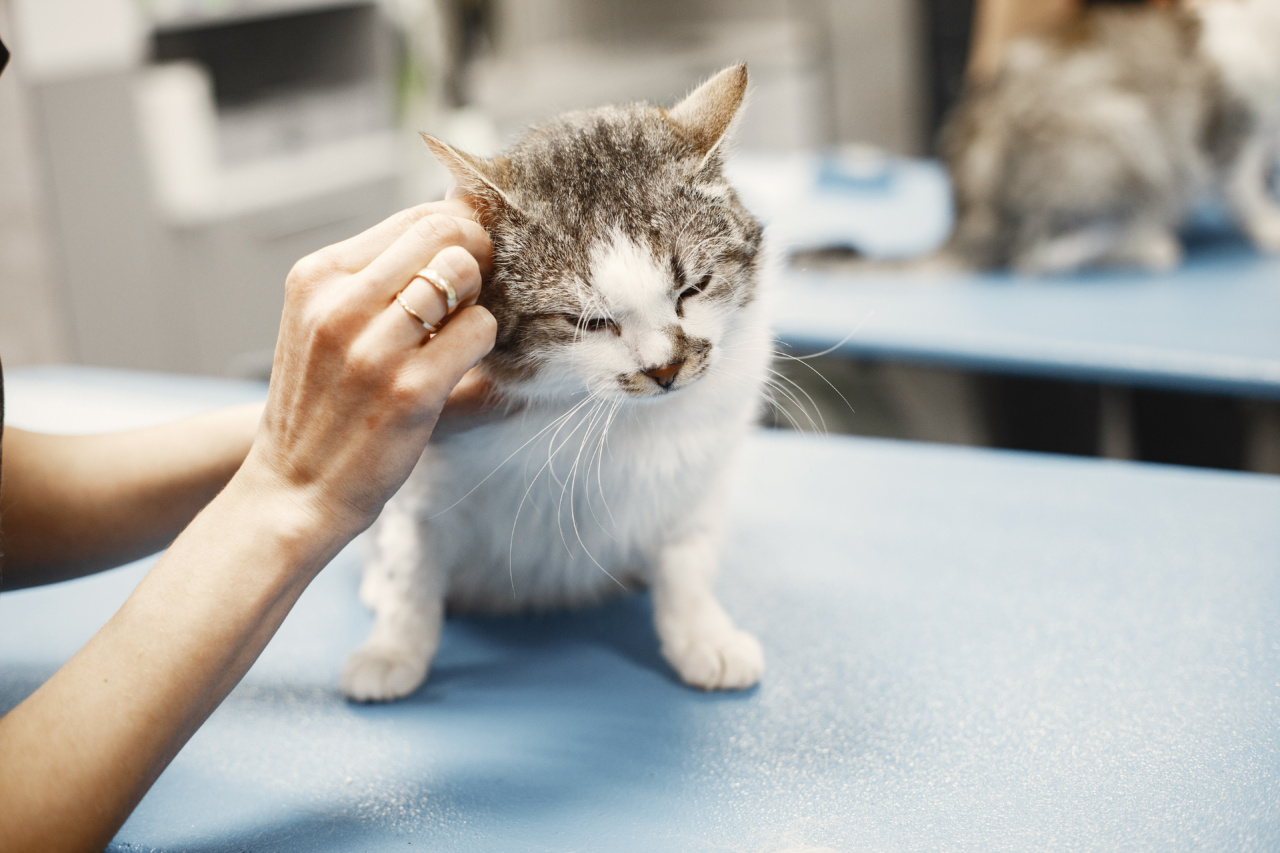Vomiting in cats is a common occurrence and can be caused by various factors. While occasional vomiting is usually not a cause for concern, persistent or frequent vomiting may indicate an underlying health issue that requires veterinary attention.
In this article, we will explore the possible causes of cat vomiting and when it is necessary to take your furry friend to the vet.
What Causes Cat Vomiting?
There are several potential reasons why cats vomit. It is important to understand that occasional vomiting can be a natural behavior for cats, as they may regurgitate hairballs or eat grass to induce vomiting.
However, if your cat is experiencing persistent or severe vomiting, it could be indicative of an underlying problem. Some common causes of cat vomiting include:.
1. Dietary Indiscretion
Cats are notorious for their curious nature and may ingest foreign objects or foods that do not agree with their digestive system.
Consuming spoiled food, eating too quickly, or ingesting non-edible items can lead to stomach upset and subsequent vomiting.
2. Hairballs
Cats groom themselves regularly, and during this process, they may ingest loose fur. Hairballs can form in the stomach, causing irritation and triggering vomiting.
While occasional hairballs are normal, frequent or large hairballs may require veterinary intervention.
3. Allergies
Some cats may develop allergies or intolerances to certain foods or environmental factors. Ingesting an allergen can lead to gastrointestinal upset and vomiting as the body tries to expel the offending substances.
4. Gastrointestinal Infections
Cats can contract viral or bacterial infections that affect their gastrointestinal tract, leading to vomiting. Common infections include feline panleukopenia, feline viral rhinotracheitis, and feline calicivirus.
5. Parasites
Internal parasites, such as roundworms, hookworms, or tapeworms, can cause vomiting in cats. These parasites may irritate the stomach lining or disrupt the normal functioning of the digestive system.
6. Organ Dysfunction
Underlying organ dysfunction, such as kidney disease or liver disease, can manifest as vomiting in cats. If the kidneys or liver are not properly functioning, toxins can build up in the body, leading to gastrointestinal disturbances.
7. Poisoning
Ingestion of toxic substances, such as certain plants, household chemicals, medications, or human foods, can result in vomiting. Some substances are highly toxic to cats and may require immediate veterinary attention.
8. Stress or Anxiety
Cats can experience stress or anxiety in various situations, such as changes in their environment, introduction of a new pet, or loud noises. Stress-induced vomiting is usually temporary and subsides once the cat adapts to the situation or stressor.
When to Take Your Cat to the Vet
While occasional vomiting may not be worrisome, there are certain signs that indicate you should seek veterinary care for your cat:.
1. Frequent or Persistent Vomiting
If your cat vomits more than once a day or the vomiting continues for several days, it is advisable to consult a veterinarian. Frequent or persistent vomiting can lead to dehydration and nutritional deficiencies.
2. Blood in Vomit
Finding blood in your cat’s vomit is a concerning sign and should never be ignored. Blood may indicate internal injuries, gastrointestinal bleeding, or other serious health issues that require immediate veterinary attention.
3. Lethargy and Loss of Appetite
If your cat is vomiting and experiencing a lack of energy or appetite, it could be a sign of a more significant underlying problem. Cats are known for their appetite, so a sudden loss of interest in food is generally a cause for concern.
4. Vomiting in Conjunction with Other Symptoms
If your cat is vomiting along with other symptoms such as diarrhea, fever, abdominal pain, excessive drooling, or difficulty breathing, it is crucial to seek veterinary care. These signs may indicate a severe illness or medical emergency.
Conclusion
Vomiting in cats can occur due to various reasons, ranging from minor issues to more serious health conditions. While occasional vomiting may not require immediate veterinary attention, persistent or severe vomiting should not be ignored.
It is always better to consult a veterinarian if you are unsure about your cat’s health. Prompt veterinary care can help diagnose the underlying cause and ensure appropriate treatment, leading to a healthier and happier feline companion.






















